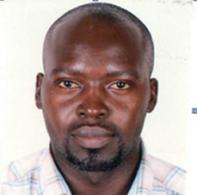Robinson Odong
BSc, MSc, PhD
Lecturer
Department of Zoology, Entomology & Fisheries Sciences, College of Natural Sciences, Makerere University.
Email: robinson.odong@cns.mak.ac.ug
Robinson Odong holds a PhD in Environmental Biotechnology of Makerere University, Uganda, obtained in January 2015. For his PhD, he used integrated bio-processes including anaerobic and aerobic sequencing batch reactors, and constructed wetland systems to efficiently treat abattoir wastewater at the City Abattoir, Kampala. Through the treatment process, biogas and slurry are generated as by-products of digestion. Biogas is a renewable source of energy, in contrast to fossil fuels. The conversion of wastes to energy contributes to climate change mitigation, since it is a carbon neutral source of energy. He is also passionate about research in Limnology, Environmental Bio-monitoring. For Masters, he studied benthic macro-invertebrates as bio-indicators of the quality of water in Murchison Bay, Lake Victoria. His on-going research include use of integrated floating island systems and bivalves in bioremediation of effluents emanating from aquaculture farms. Bivalves feed on algae in fish effluents through filter feeding mechanism, in the process removing excess nutrients from aquaculture ponds. When they build their flesh, they can be used as ingredients to provide protein source in fish feeds, hence, reducing on cost of purchase of fish meals.
Research Interest:
- Bio-monitoring; Wastewater treatment; Use of invertebrates in fish feeds

